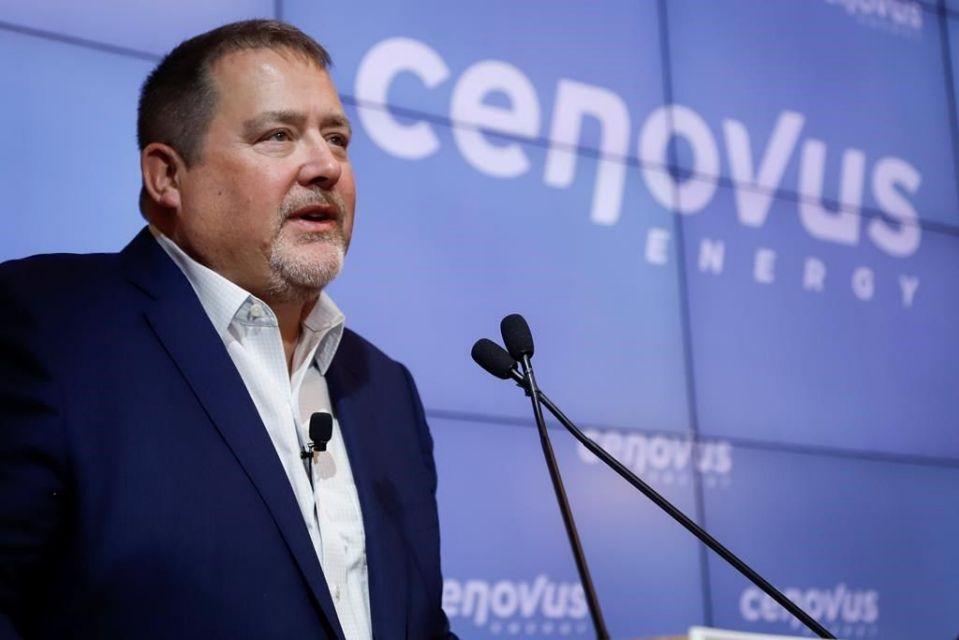Cenovus Energy Inc has agreed to buy rival Husky Energy Inc in an all-stock deal valued at $2.9 billion to create Canada's third-largest oil and gas producer as a pandemic-driven collapse in demand forces the industry to consolidate.
Only Canadian Natural Resources Ltd and Suncor Energy Ltd. would be larger than the new company.
The deal also makes Cenovus an integrated producer with refineries in Canada and the US, adding to their existing half-ownerships in two US refineries.
Husky shareholders will get 0.7845 of a Cenovus share and 0.0651 of a Cenovus share purchase warrant for each Husky common share.
Cenovus shareholders would own 61 percent of the combined entity, with Husky shareholders controlling the rest.
Hutchison Whampoa, the biggest shareholder of Husky with a 40.2 percent stake, would hold a 15.7 percent share in the new company.
The agreement follows recent big US deals with ConocoPhillips $9.7 billion acquisition of Concho Resources and Chevron Corp.'s $4.2 billion purchase of Noble Energy.
Canadian oil companies have been under stress for six years due to congested pipelines and the flight by foreign oil companies and investors from the country’s high production costs and emissions.
Consolidation makes the Canadian industry leaner and lowers costs, said Jackie Forrest, executive director at the ARC Energy Research Institute, adding that deal-making is likely just getting started.
According to Cenovus CEO Alex Pourbaix, acquiring refineries, pipelines and storage offered a solution to Canada’s often-congested pipelines, which have usually created price discounts.
Pourbaix added that the deal would almost completely remove their exposure to West Texas Intermediate/Western Canada Select differentials.
Pourbaix denied that the deal was in response to the risk that oil pipelines will be more difficult to build if Joe Biden wins the US presidency.



 Prudential Financial Reports Higher Q4 Profit on Strong Underwriting and Investment Gains
Prudential Financial Reports Higher Q4 Profit on Strong Underwriting and Investment Gains  SoftBank Shares Slide After Arm Earnings Miss Fuels Tech Stock Sell-Off
SoftBank Shares Slide After Arm Earnings Miss Fuels Tech Stock Sell-Off  Nvidia, ByteDance, and the U.S.-China AI Chip Standoff Over H200 Exports
Nvidia, ByteDance, and the U.S.-China AI Chip Standoff Over H200 Exports  OpenAI Expands Enterprise AI Strategy With Major Hiring Push Ahead of New Business Offering
OpenAI Expands Enterprise AI Strategy With Major Hiring Push Ahead of New Business Offering  SpaceX Prioritizes Moon Mission Before Mars as Starship Development Accelerates
SpaceX Prioritizes Moon Mission Before Mars as Starship Development Accelerates  Hims & Hers Halts Compounded Semaglutide Pill After FDA Warning
Hims & Hers Halts Compounded Semaglutide Pill After FDA Warning  Nvidia CEO Jensen Huang Says AI Investment Boom Is Just Beginning as NVDA Shares Surge
Nvidia CEO Jensen Huang Says AI Investment Boom Is Just Beginning as NVDA Shares Surge  Sony Q3 Profit Jumps on Gaming and Image Sensors, Full-Year Outlook Raised
Sony Q3 Profit Jumps on Gaming and Image Sensors, Full-Year Outlook Raised  Anta Sports Expands Global Footprint With Strategic Puma Stake
Anta Sports Expands Global Footprint With Strategic Puma Stake  Baidu Approves $5 Billion Share Buyback and Plans First-Ever Dividend in 2026
Baidu Approves $5 Billion Share Buyback and Plans First-Ever Dividend in 2026  Samsung Electronics Shares Jump on HBM4 Mass Production Report
Samsung Electronics Shares Jump on HBM4 Mass Production Report  Alphabet’s Massive AI Spending Surge Signals Confidence in Google’s Growth Engine
Alphabet’s Massive AI Spending Surge Signals Confidence in Google’s Growth Engine  CK Hutchison Launches Arbitration After Panama Court Revokes Canal Port Licences
CK Hutchison Launches Arbitration After Panama Court Revokes Canal Port Licences  Rio Tinto Shares Hit Record High After Ending Glencore Merger Talks
Rio Tinto Shares Hit Record High After Ending Glencore Merger Talks  Washington Post Publisher Will Lewis Steps Down After Layoffs
Washington Post Publisher Will Lewis Steps Down After Layoffs  Global PC Makers Eye Chinese Memory Chip Suppliers Amid Ongoing Supply Crunch
Global PC Makers Eye Chinese Memory Chip Suppliers Amid Ongoing Supply Crunch 































